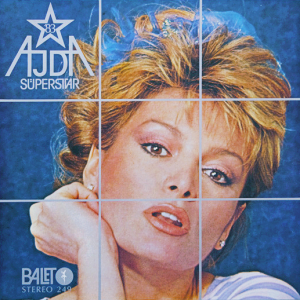Related Research Articles

Ilyas is a form of the masculine given name Elias or Elijah.
Gul is a common name in Persian and Turkish languages, meaning rose. Gul is used as a family name in Europe, Central and South Asia.

Ayşe Ajda Pekkan is a Turkish singer. She is known by the title "superstar" in the Turkish media. Pekkan became a prominent figure of Turkish pop music with her songs, in which she tried to create a strong female figure. By keeping her works updated and getting influence from Western elements, she managed to become one of Turkey's modern and enduring icons in different periods. Her musical style has kept her popular for more than 50 years and has inspired many of her successors. Pekkan is highly respected in the music industry and her vocal techniques together with many of her albums were praised by music critics.
Vahid is the Persian, Kurmanji Kurdish and Bosnian variant of the Arabic masculine given name Wahid, meaning "The One", "Unique". People named Vahid include:
Irfan is an Arabic/Persian male given name, meaning "knowledge", "awareness" and "learning".
Haydar, also spelt Hajdar, Hayder, Heidar, Haider, Heydar, and other variants, is an Arabic male given name, also used as a surname, meaning "lion". In Islamic tradition, the name is primarily associated with Ali ibn Abi Talib, the son-in-law and cousin of Muhammad, who was nicknamed "Haydar".
Bahri is a masculine Arabic given name, Bahri is also a surname in Punjabi Khatri families of India.

Farooq is a common Arabic given and family name. Al-Fārūq literally means "the one who distinguishes between right and wrong."
Aart is a Dutch short form of the given name Arnout. Notable people with the name include:
Çelik, meaning "steel" in Turkish, is a Turkish given name and surname. It may refer to:
Nurullah is a masculine given name of Arabic origin, meaning light of God of Muslim origin. It is derived from the Arabi word nur, meaning light, and Allah, meaning God. It may also be romanized as Noorullah, Norullah, or Nourullah.
Adela is a female given name meaning noble or serene.
Adelheid is the modern Dutch and German form of the Old High German female given name Adalheidis, meaning "nobility" or "noble-ness". It may refer to the following people:
Adile is a Turkish feminine given name. Notable people with the name include:
Şehrazat Kemali Söylemezoğlu, known by her stage name Şehrazat or Şehro, is a Turkish celebutante, television personality, businesswoman, philanthropist, composer, songwriter, record producer, occasional jazz, and pop music singer.
Adna is a given name of Hebrew origin. Notable people with the name include:
Adina (עדינה) is a feminine given name of Hebrew origin. The Hebrew word עדינה means "gentle" or "mild".
Pour Lui is a Japanese singer.
Pehlivan or Pahlevan derives from Iranian language word meaning noble, wrestler, hero or champion and it is a loan word in many Asiatic languages as well as middle eastern languages including Turkish surname originally given to wrestlers. The name of Feyli (Pehli) Kurds is also deriving from the same root word. The word consist of two Iranic (Aryen) word "pehli" or "pahli" and "van, wan". While peh, pah is root word for hero "van" or "wan" is a suffix similar as in "er, or" in soldier, warrior, wrestler, shopper.

Süperstar '83 is the ninth studio album by Turkish singer Ajda Pekkan. It was released on 19 March 1983 by Balet Plak. With the release of the albums Süperstar (1977) and Süperstar 2 (1979) in the decade before, Pekkan succeeded in getting critical acclaim, however, following her poor results on the Eurovision Song Contest 1980 she stayed away from the music market for a while. Meanwhile, she released two records under the Yaşar Kekeva Plak label, but experienced various problems with the company. While Pekkan's disagreements with the company continued, in August 1982 she joined the musical Büyük Kabare with Metin Akpınar and Zeki Alasya. Some of the songs from this show, which were written by Fikret Şeneş, appeared in the third installment of the Süperstar album series.
References
- ↑ Varnhorn, Beate; Lexikoninstitut Bertelsmann (2008). Bertelsmann, Das grosse Lexikon der Vornamen (in German). Gütersloh: Wissen Media Verlag. p. 14. ISBN 978-3-577-07694-4. OCLC 239608664 . Retrieved 2018-12-15.